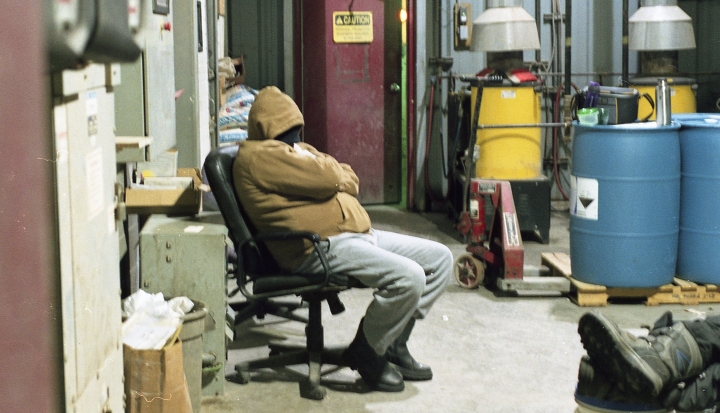It’s that time of the year again. The peak of flu season has been affecting workplaces across America (as if we haven’t had it bad enough with the crazy winter weather we’ve experienced). Although doctors recommend that one of the best ways to get rid of the flu is to stay well rested and sleep, many people don’t have time to lie around and help their body regain the energy and to redirect it to their immune system.
According to a recent poll of more than a thousand people by NSF International (a public health and safety organization), 1 in 4 American workers surveyed said they show up to work ill—even though this is taxing on their bodies and potentially dangerous since the virus could spread to coworkers and make them sick as well. Those surveyed were asked five reasons—although I’m sure there are many more—why they choose to come to work sick. Here are the top two:
Forty-two percent said that there were “too many deadlines or too much work” that they couldn’t afford to get behind on. This isn’t surprising because Americans are notoriously overworked compared to other countries around the world. Although the number of work hours per year in America has declined a fair amount over the past six decades, the average American works almost 230 hours more per year than the average Frenchman and nearly 300 hours more than the average German. Although there are deadline that need to be met—and we at U.S. Catholic definitely know this—one shouldn’t have to worry that taking a day off will be detrimental to ones job.
The second most stated reason why an employee would go to work sick (37 percent) is that they simply cannot afford to be sick. In many places of employment, the rules are clear enough: If you don’t come to work, you don’t get paid. According to the 2012 National Compensation Survey from the Bureau of Labor Statistics regarding leave benefits access, only 61 percent of private-sector workers receive paid sick leave. That means that 4 out of 10 Americans cannot take time off of work for unforeseen illnesses.
If you breakdown the numbers from the survey, you will find some troubling results. Of the people making the lowest 10 percent in average wages, nearly 8 out of 10 people don’t receive paid sick time. For those making the top 10 percent in average wages, 86 percent of them receive paid time off—meaning those who could probably afford to take a day off without pay don’t have to worry about losing wages.
The survey breaks down each career as well. Not surprisingly, those who work in careers mostly associated with minimum wage are those who aren’t receiving paid sick time. Only 40 percent of those in construction can take a day off to rest, while only 24 percent in accommodation and food services can without any backlash. The Bureau of Labor Statistics unfortunately does not include the numbers among different races in America. I would be interested in these numbers since the Institute for Women's Policy Research estimates that in 2011 nearly 44 percent of African American workers and 58 percent of Latino workers lacked paid sick time. To give them time off would reduce the race disparities in our country.
National Laws do not require employers to give paid time off to their employees. However, over the past few years we have seen required paid time off laws on the state and city levels. San Francisco was the first city to pass this law in 2007. Eighteen states have passed legislations or it has been introduced. On the other hand, there are still 10 states that prohibit paid sick leave. My hope is that more states join in the effort to respect all workers and give them fair benefits to live with—even if they’re sick.
Image: Flickr photo cc by Colby Stopa









